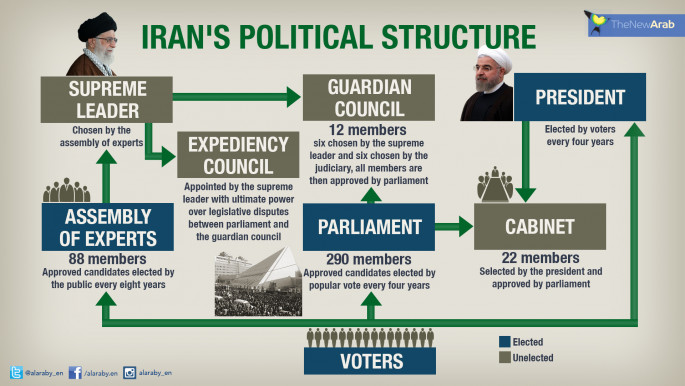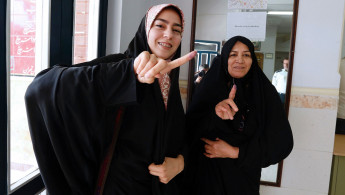As Iranian moderates win elections, don't expect much change
Rouhani's allies won 42 percent of the seats, not a majority but with the backing of some independents, this should be enough to pass legislation.
The vote had been interpreted as a potential battleground between reformists and conservatives, which has heated up following Iran's nuclear deal with the West.
Tensions spilled into violence when an argument between reformists and conservatives at a polling booth ended in a shooting with four people injured.
However, bloodshed was markedly down from 2009, when presidential elections saw dozens killed as police and militias cracked down on Green Movement protesters.
But the differences between the pro-Rouhani parliament and the conservative government is also understated while the power of hardliners has waned significantly, on the domestic scene at least.
The elections saw the conservative group losing its 12 years-control of parliament winning just a third of the vote.
However, President Rouhani is a moderate - not a reformer - and his allies' are not exactly a threat to the ruling system.
His mission has been economic rather than social. Some Iranians are still hoping that the elections will bring some change.
 |
Iran's parliament is more of an oversight body rather than a very active legislative body --Sanam Vakil, Chatham House |
 |
"The election is important because it will give the parliament a new form," said Farah al-Zaman Shawki, The New Arab's Arabic edition Iran correspondent.
 |
| Click to enlarge |
Disagreements between reformists and conservatives are chiefly on Iran's nuclear deal and how far the economy should be opened up to the outside world, added Shawki.
"Reformers are talking about opening the country, having relations with others, but conservatives are afraid of that. They have a problem in trusting the West," she said.
"There's no division but there are two opinions about how they can make the economy better after years of sanctions."
Iran's conservatives have done what they can to block the growth of the moderates in parliament. The Guardian Council rejected the nomination of over 5,000 - mostly moderate and reformist – candidates before elections.
They still dominate the upper echelons of government, and are unlikely to relax social policies in any meaningful way. Moderate domination of parliament will not mean far-reaching changes.
"Iran's parliament is more of an oversight body rather than a very active legislative body," said Sanam Vakil, associate fellow at Chatham House.
"Rouhani is looking for a more compliant parliament because he has an ambitious economic agenda which he has to put in place in order to meet his campaign promise of economic growth."
 |
There won't be a wholesale shake-up on gender equality, or veiling, or other issues tied to the integrity of the government |  |
Reforms Rouhani might now pursue include tackling corruption and addressing transparency which would be necessary changes to woo foreign investors.
"Many conservatives who have ties with the Supreme Leader [Ali Khamenei] are fearful of too much foreign influence in the Iranian economy and that this might result in greater political influence," she explained.
"They want international investors whom they trust, rather than Westerners."
Vakil believes it is unwise to overstate the impact of the elections for Rohani.
"What is a clear characteristic of the Iranian parliament is that in the absence of political parties, there are factional affiliations but these affiliations don't promise loyalty."
Many of those voted in as "reformists" might not have this agenda once in parliament. Others could switch sides once the pendulum of power swings the other way.
This means it is impossible to second-guess how the new parliament might act.
Vakil believes the best possible outcome at present is the establishment of a "Chinese model" reformed state with some economic liberalisation.
"Maybe, eventually, there will be slightly more social and cultural liberalisation, but nothing dramatic. We are not going to see a wholesale shake-up on gender equality, or veiling, or other issues tied to the integrity of the government," she said.
"This is a government which is part of the establishment. They are not reformist in orientation, they are pragmatic and moderate, but working to stabalise the system."



